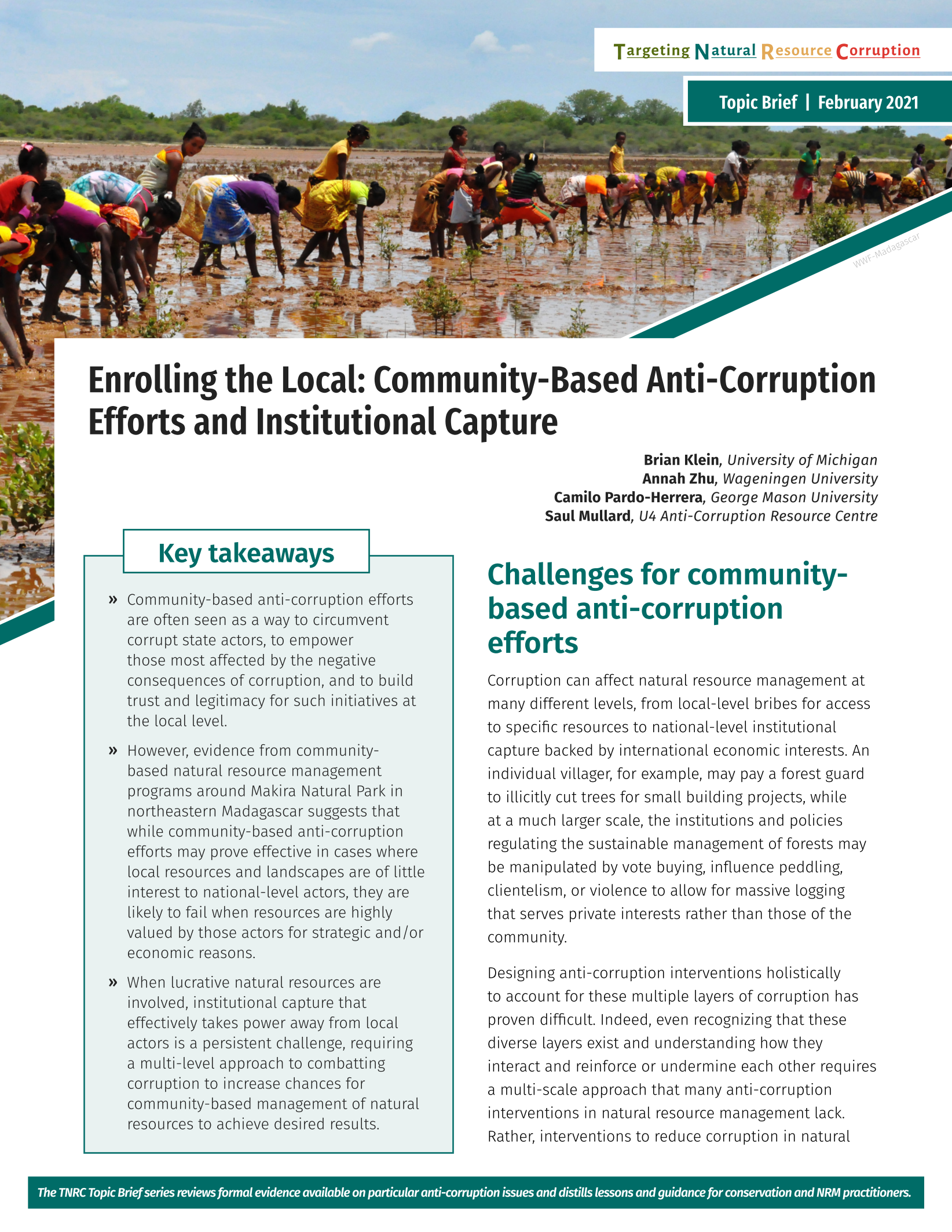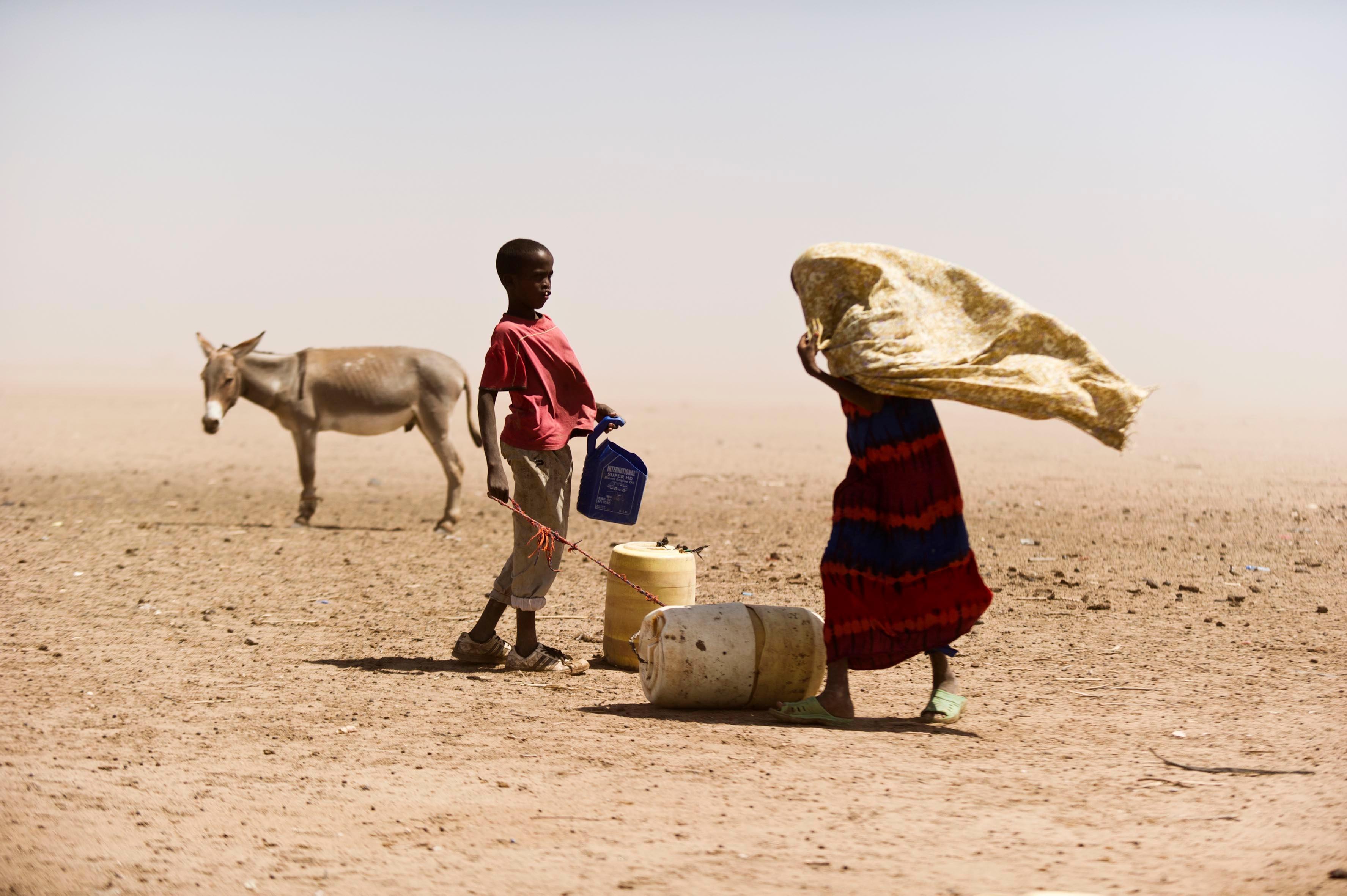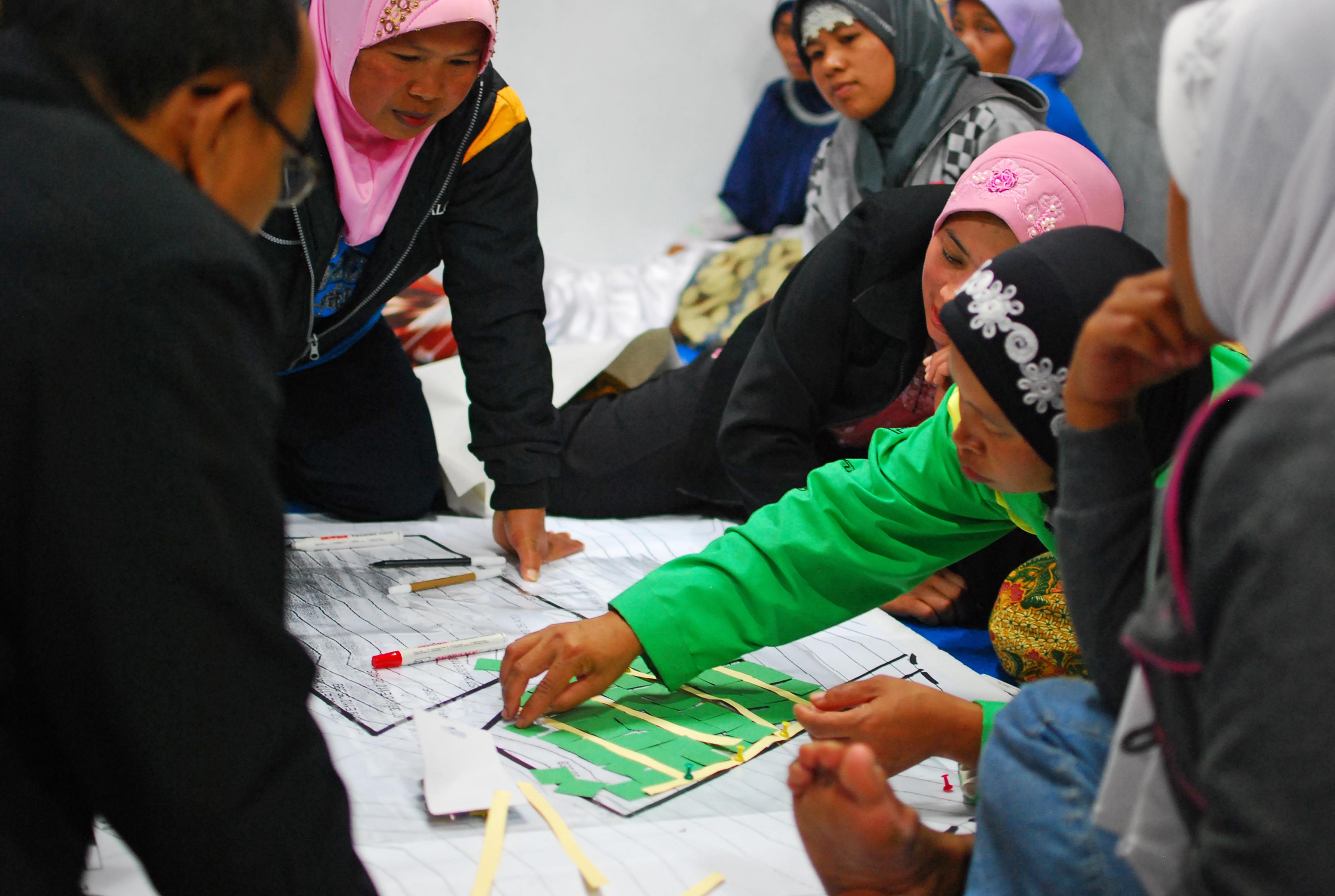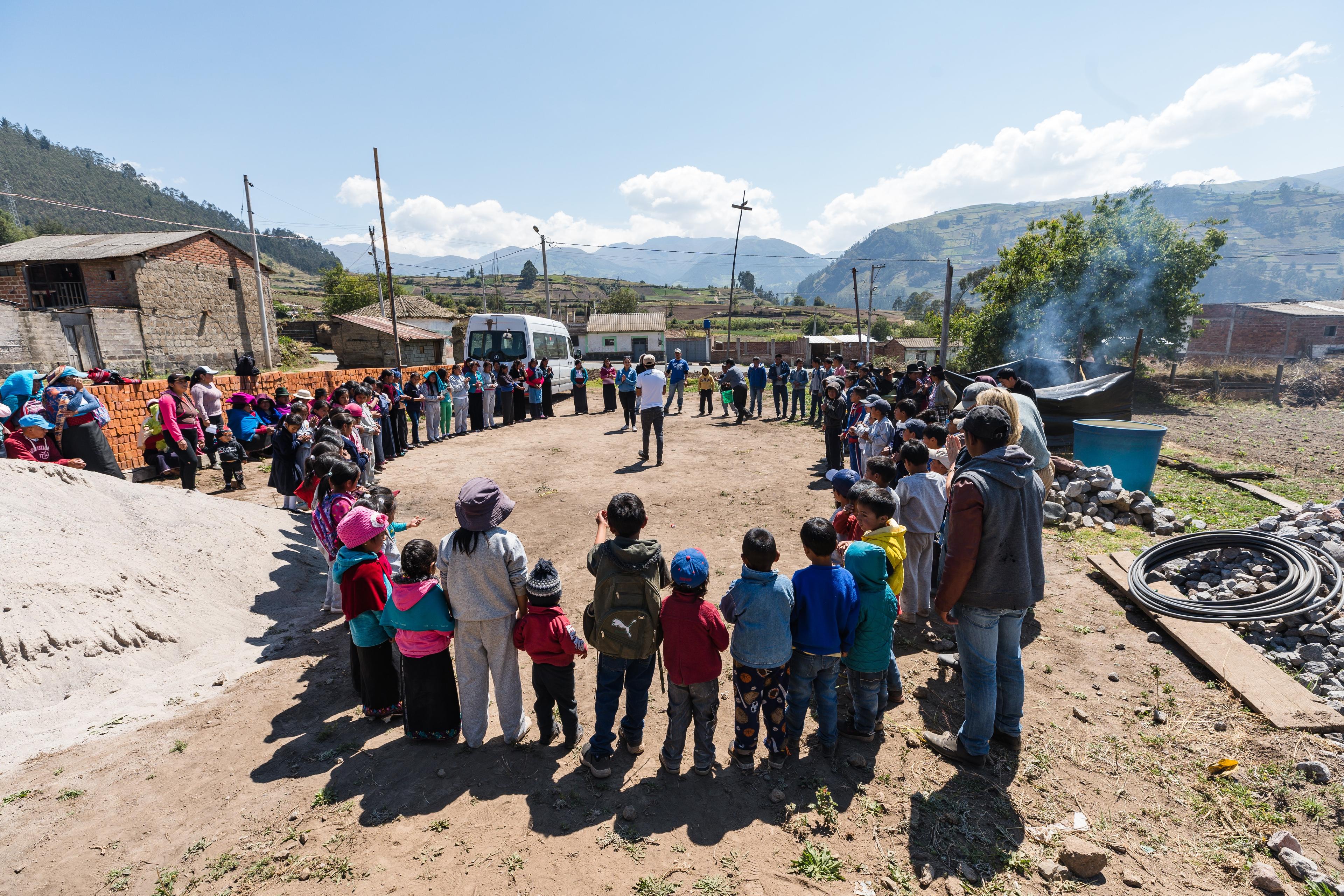Main points
- Community-based anti-corruption efforts are often seen as a way to circumvent corrupt state actors, to empower those most affected by the negative consequences of corruption, and to build trust and legitimacy for such initiatives at the local level.
- However, evidence from community-based natural resource management programs around Makira Natural Park in northeastern Madagascar suggests that while community-based anti-corruption efforts may prove effective in cases where local resources and landscapes are of little interest to national-level actors, they are likely to fail when resources are highly valued by those actors for strategic and/or economic reasons.
- When lucrative natural resources are involved, institutional capture that effectively takes power away from local actors is a persistent challenge, requiring a multi-level approach to combatting corruption to increase chances for community-based management of natural resources to achieve desired results.





